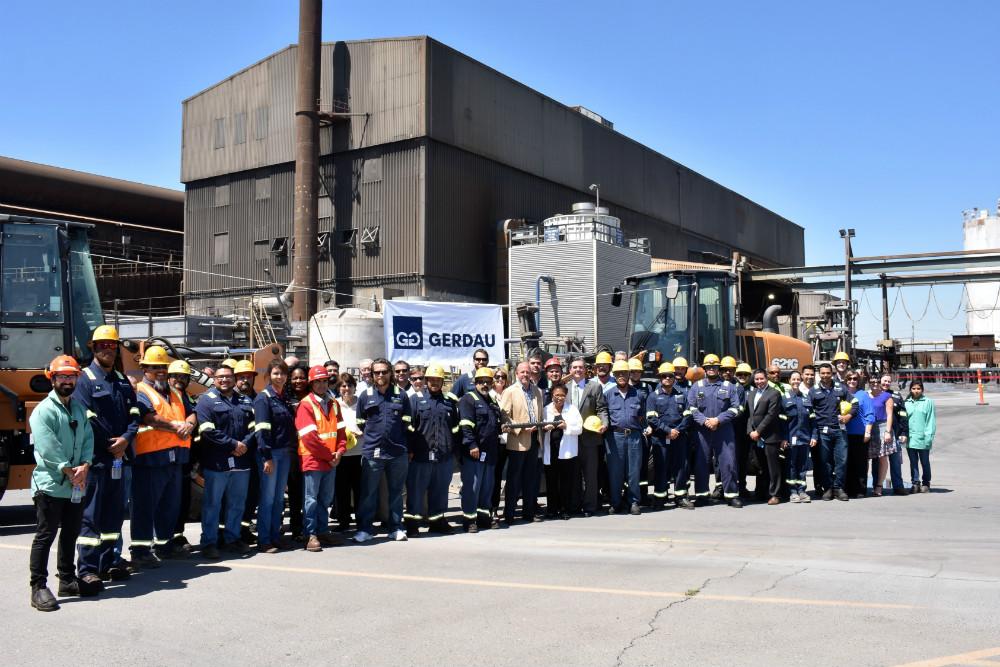While Gerdau may not be a household name, it is nevertheless one of the largest steel companies in the world and the largest recycler in all of Latin America. It also happens to be a Brazilian company founded by a German migrant with offices and facilities located all over the globe. It should surprise no one, then, that diversity is a core component of its workforce.
So, when George Floyd’s killing at the hands of police in May 2020 left Gerdau employees in a state of distress and hopelessness, the company’s executives immediately wondered what they could do to help. What they found, simply by asking their employees, was that many of them were not okay — and they needed to be heard.
Throughout the summer of 2020 and beyond, Gerdau’s leadership listened. Employees repeatedly told them that police killing unarmed Black Americans was an all-too-familiar occurrence, with roots running deeper than any single event. They also learned how systemic racism has wrought drastic and deadly repercussions on Black communities, particularly in the United States.
As a result of these discussions, an internal corporate lecture series called “Conversations About Race” was born. In this safe space created by Gerdau, employees shared their personal stories and perspectives on the Black experience. All employees were invited to attend as their co-workers spoke on a variety of topics, such as “The Mental Health Impact of Negative Police Encounters,” “Raising a Black Family in a White Society,” and “Redefining Racism and How to Overcome It.”
Some of Gerdau’s’ employees expressed hope; others vented frustrations, but everyone learned more about the challenges of living and working amid diversity. As one employee stated, “Even in the age of information, far too many people have negative perceptions regarding races different than their own.” Jennifer Alexander, a human resource manager based out of the company’s mill in Jackson, Tennessee, talked of how embracing her own community meant eschewing her natural shyness to help others who did not necessarily look like her — and finding fewer differences than might have been expected.
“A lot of my values align with the Gerdau principle of ‘do what is right,’” Alexander says. “Everybody’s values are different, but at the end of the day, I believe in doing what is right and having kindness for people.”
Alexander, a military brat whose mother was HIV-positive, was recently named a Woman of Impact by the American Heart Association for her efforts with Heart Walk, Go Red for Women, and other non-profits. She credits Gerdau’s culture for supporting both her and her community.
Raleigh Wunderlich, a white quality assurance intern, encountered diversity as part of a biracial team at one of the company’s mills. “Teams are entirely dependent on communication,” Wunderlich recalls, “so, if you don’t have that open and honest communication, things are going to get messy.”
Both she and her teammate, Bryan Williams, who is Black, credit Gerdau’s culture for empowering them to communicate with truth and respect. “It’s all about how much you value that relationship,” says Williams. “The way you approach situations ultimately determines how you really value those relationships.”
Other Gerdau teams are focused on keeping one another safe, which the company considers the most important job of all. But it’s not just about safety within the mills; it’s about employees’ safety in being open both at and outside of work, as well as the safety of the company’s customers around the world.
“Our people connect the world through bridges and cars, move people on elevators and across railroads and also construct homes,” says Adam Parr, Gerdau’s director of communications and public affairs. “We empower people who build the future, and when you employ 30,000 workers around the world, it’s inevitable that your organization will be diverse. We simply acknowledge that we are stronger for both our differences and our similarities.”
Perhaps it helps that, in addition to fueling economic growth and opportunities, Gerdau’s mills have embraced a higher purpose: protecting the environment with efficient and clean production practices, including the use of electric arc furnace (EAF) technology. “This makes our steel one of the greenest choices available,” Parr notes, adding that Gerdau’s products are now almost entirely composed of recycled content.
By caring about the planet as well as the communities in which it operates, Gerdau has forged thousands of interpersonal connections between people from a diversity of backgrounds, sexes, races, religions, orientations, and identities. And, according to its executives, the conversation is just getting started.
Learn more about MCK News here. MCK News’ Editor In Chief been featured in Forbes, Fox Business, Authority Magazine, Modern Marketing Today, PR Pioneer, Market Daily, O’Dwyer PR, DKoding, Business Insider, and Consumer Affairs.




